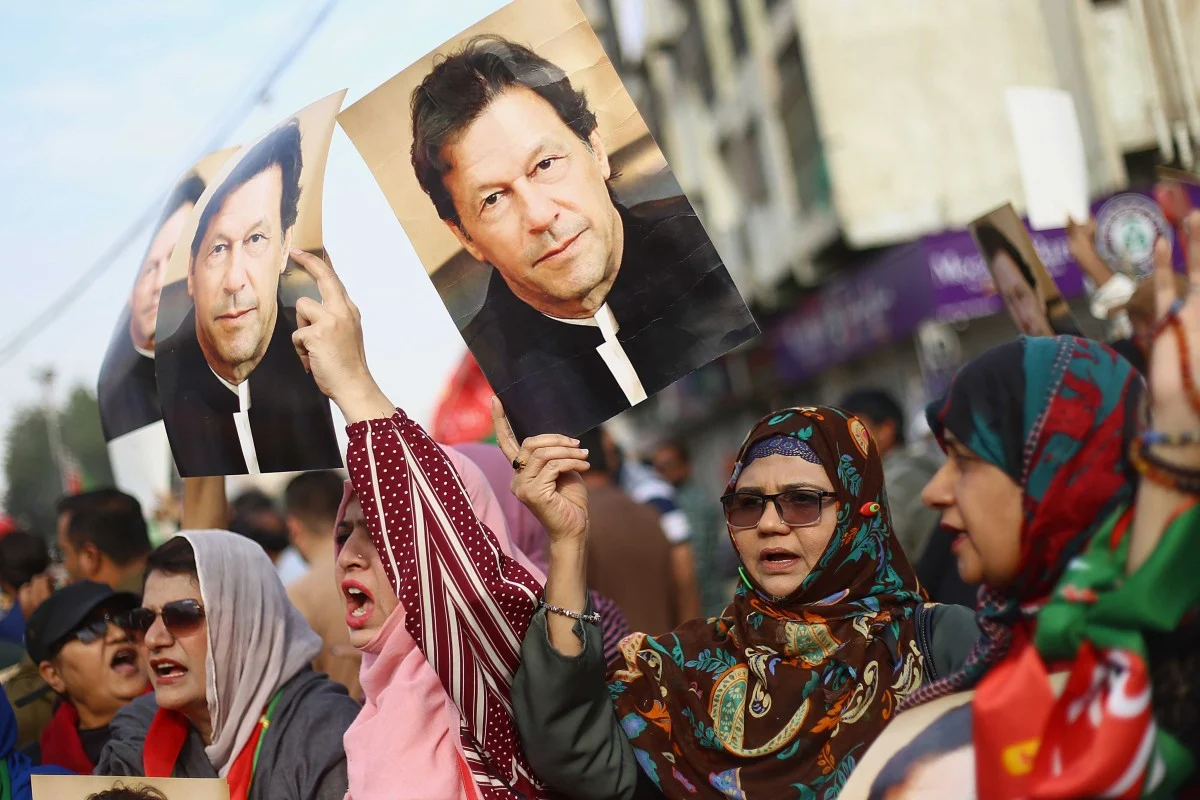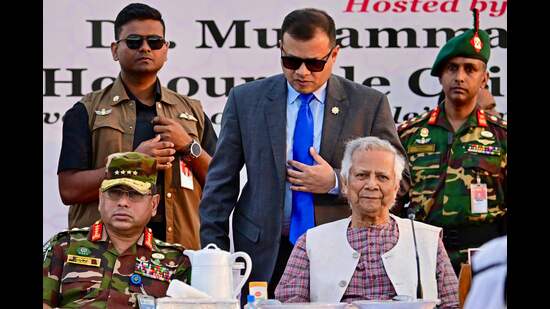Prof. Syed Munir Khasru
South China Morning Post
September 14, 2024
https://www.scmp.com/opinion/asia-opinion/article/3278106/bangladeshs-uprising-offers-lessons-pakistans-democracy
__________________________
Inspired by the success of the student-led popular movement in Bangladesh resulting in the ouster of Prime Minister Sheikh Hasina, some Pakistanis were seen carrying Bangladeshi flags in rallies in solidarity.
As Bangladesh’s South Asian neighbours gain inspiration, the role of the Bangladeshi army has unsurprisingly come under scrutiny. Their measured response and refusal to use force against civilians stands in stark contrast to the historical and contemporary actions of the Pakistan army.
Pakistan’s 77-year history has been marked by frequent military interventions in civilian affairs and democratic evolution has been rather paradoxical. While military interventions often facilitated transitions to civilian rule, they simultaneously constrained democratic governance.
This resulted in a political landscape where civilian governments operated under the shadow of military influence, unable to consolidate democratic norms and institutions. This pattern of military involvement has led to a revolving door of civilian leaders, unable to complete their terms amid behind-the-scenes machinations by the army. Notable examples include the 1993 ousting of former prime minister Benazir Bhutto and, more recently, Imran Khan.
In contrast, Bangladesh has charted a different course since its return to parliamentary democracy in 1991. The country’s military has largely refrained from direct political involvement. A pivotal moment came in 2007 when the then ruling Bangladesh Nationalist Party attempted to manipulate elections.
The military supported an interim caretaker government, ostensibly influenced in part by international pressure, particularly the UN reportedly threatening to exclude Bangladesh from peacekeeping missions if they engaged in election tampering.
Since Sheikh Hasina’s return to power in 2009, the army has largely remained in the barracks, refraining from interventions even as Hasina’s government was criticised for holding largely non participative and questionable elections thrice – 2014, 2018 and in 2024 – before her downfall.
As protests against Hasina’s government intensified, the army refused her requests for quelling the unrest. Army Chief General Waker-Uz-Zaman’s decision not to deploy troops against civilians marked the turning point for Hasina’s iron fist rule of 15 years as she ran out of options. Even as the police faltered under the pressure of civilian attacks, the army maintained its stance of non-intervention.
This restraint was crucial in allowing for a peaceful transition to an interim government led by Nobel laureate Muhammad Yunus. Scenes of jubilant students in camaraderie with young army officers captured the nation’s mood as the country was coming out of the clutches of a prolonged autocratic rule that saw human rights and civil liberties trampled.
Another crucial area where Pakistan and Bangladesh diverge is in the role of their intelligence agencies. In Pakistan, the Inter-Services Intelligence (ISI) is widely perceived as an extended arm of the military exerting influence over foreign, defence and domestic matters, often operating beyond civilian oversight. This has allowed the military to maintain significant control over the country’s political and strategic direction, even during periods of civilian rule.
In contrast, Bangladesh’s Directorate General of Forces Intelligence has been primarily controlled by the prime minister’s office rather than the military. This arrangement, while not without its problems, is significantly different from the Pakistani model.
The infamous Aynaghar prison or “house of mirrors” where Bangladeshi intelligence forces allegedly detained individuals without due process during the rule of Hasina has become a symbol of the agency’s controversial practices. However, it’s important to note that these actions are typically carried out at the behest of the political civilian government, not the military.
On August 29, in a significant move, the country signed the instrument of accession to the International Convention for the Protection of All Persons from Enforced Disappearances, making Bangladesh the 76th party to the convention worldwide.
This not only signals Bangladesh’s evolving stance on human rights but also puts pressure on the intelligence and security apparatus to align with international norms. The situation in Bangladesh is an opportunity for Pakistan to reflect on its own intelligence practices and the relationship between its military, intelligence agencies and the civilian government.
The contrasting approaches offer several valuable lessons for Pakistan’s military. The Bangladeshi army’s respect for civilian authority and willingness to step back has emboldened the country’s democratic institutions. The choice to support national stability over power grabs shows institutional maturity on the part of Bangladesh’s army, prioritising the national interest over institutional power.
The army’s role in easing a peaceful transition to an interim government without dictating its composition offers a good model from which the Pakistan army could learn, paving the way for greater political stability and stronger democratic institutions. This would require a fundamental shift in the Pakistan military’s self-perception, from guardians of the state to servants of democratically elected governments.
Such a transformation would be neither easy nor quick, requiring a concerted effort from civilian and military leadership, as well as support from civil society. As recent events in Bangladesh show, a delicate balance between civilian authority and military power is essential for a functional democracy.
In a rare acknowledgement, Pakistan’s then-army chief General Qamar Javed Bajwa conceded during his farewell speech in November 2022 that Pakistan’s military had interfered in politics for decades and promised that the army would refrain from intervening in democratic processes.
Yet the path his successor, General Asim Munir, might have chosen contradicts this pledge. Munir is accused of orchestrating the incarceration of the popular former prime minister Imran Khan and conspiring with rival political parties to keep Khan out of power and behind bars. Old habits indeed die hard.




0 Comments